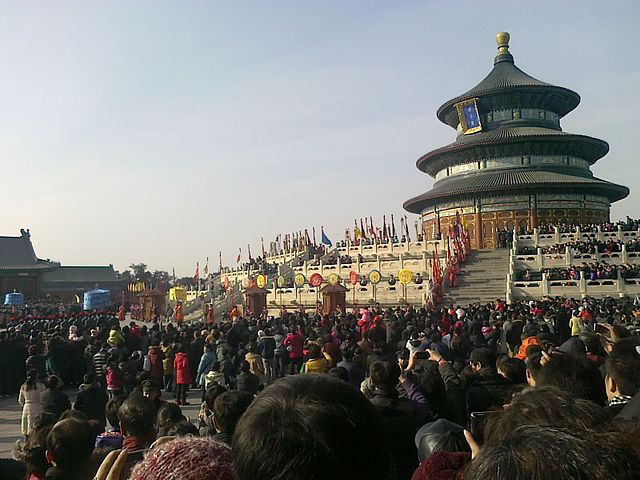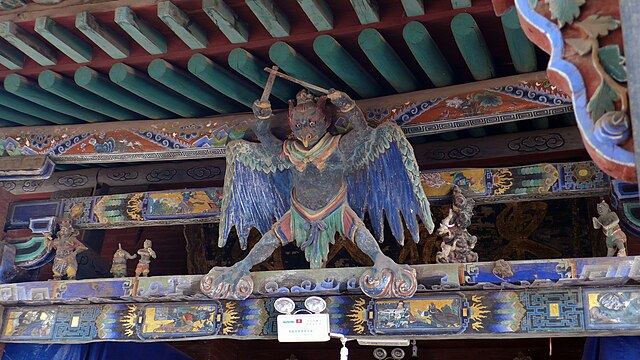Shangdi, also called simply Di, is the name of the Chinese Highest Deity or "Lord Above" in the theology of the classical texts, especially deriving from Shang theology and finding an equivalent in the later Tiān of Zhou theology.
Annual Sacrifice to Heaven (祭天 jìtiān) in honour of the Highest Deity the Heavenly Ruler (皇天上帝 Huángtiān Shàngdì) is held at the Temple of Heaven in Beijing. State pomp and a variety of Confucian religious groups have contributed in the reviving of worship of the Highest Deity in the 2000s.
Oracle bone script, the earliest known form of Chinese.
Sacred altar at the Temple of Heaven, Beijing
Chinese theology, which comes in different interpretations according to the Chinese classics and Chinese folk religion, and specifically Confucian, Taoist, and other philosophical formulations, is fundamentally monistic, that is to say it sees the world and the gods of its phenomena as an organic whole, or cosmos, which continuously emerges from a simple principle. This is expressed by the concept that "all things have one and the same principle". This principle is commonly referred to as Tiān 天, a concept generally translated as "Heaven", referring to the northern culmen and starry vault of the skies and its natural laws which regulate earthly phenomena and generate beings as their progenitors. Ancestors are therefore regarded as the equivalent of Heaven within human society, and therefore as the means connecting back to Heaven which is the "utmost ancestral father". Chinese theology may be also called Tiānxué 天學, a term already in use in the 17th and 18th centuries.[In contrast to the God of Western religions who is above the space and time] the God of Fuxi, Xuanyuan, and Wang Yangming is under in our space and time. ... To Chinese thought, ancestor is creator.

Temple of All-Heaven (都天庙 dōutiānmiào) in Longgang, Cangnan, Wenzhou, Zhejiang.
Temple of the Yellow Deity in Jinyun, Lishui, Zhejiang.
Wooden sculpture of the eagle-faced Thunder God (雷神 Léishén), punisher of those who go against the order of Heaven, at the Temple of the Eastern Peak of Baishan in Pu, Linfen, Shanxi. In the oldest accounts, he is one and the same with the Yellow Emperor.
Temple of the Jade Deity in Tianjin.







